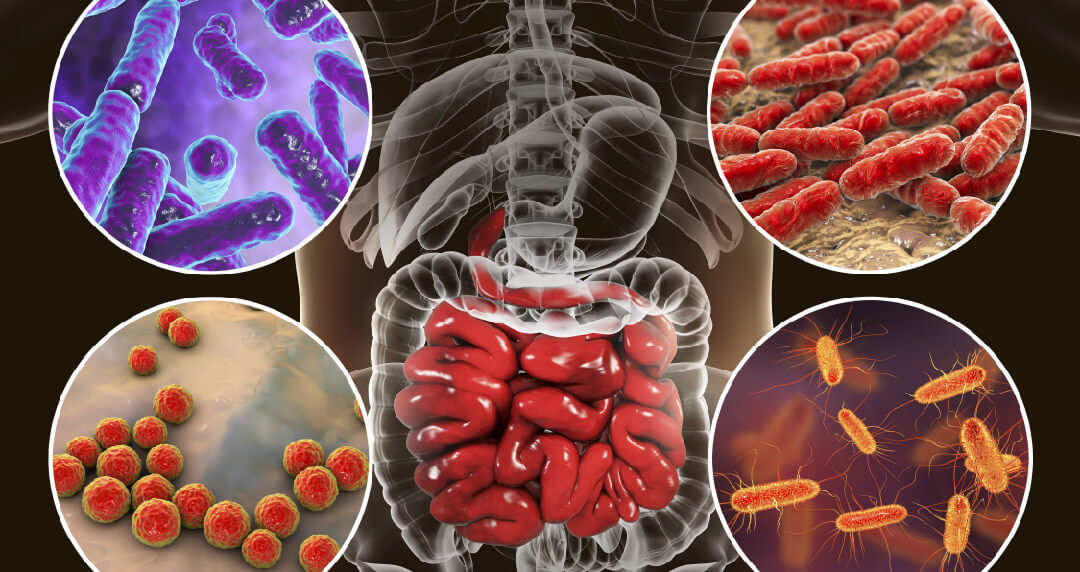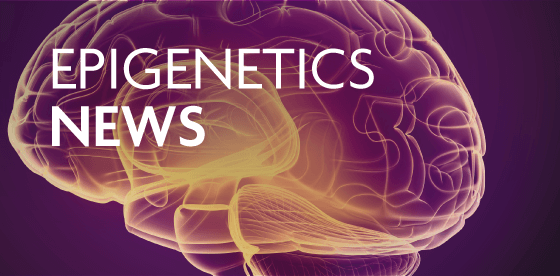<< Back to MOTIFvations Blog Home Page
Alzheimer’s Disease: The Impact of Gut Bacteria and Hippocampal DNA Methylation

September 14, 2021
Table of Contents:
-
How Interactions Between the Gut Microbiome and Hippocampal DNA Methylation Impact Alzheimer's Disease
-
Linking the Gut Microbiome to Behavior, Cognition, and Amyloid Beta Precursor (APP)
-
A Potential Link Between Gut Microbiome and DNA Methylation
-
Treament Strategies for Alheimer’s Disease – Are Diet and Probiotics an Option?
How Interactions Between the Gut Microbiome and Hippocampal DNA Methylation Impact Alzheimer's Disease
The development of safe and effective treatment approaches for neurological disorders such as Alzheimer's disease requires a detailed understanding of those mechanisms that support disease development and influence disease severity. The current physical, psychological, social, and economic impact of Alzheimer's disease on patients, relatives, and society at large cannot be understated. Dementia affects more than fifty-five million people worldwide, with nearly ten million new cases reported every year, and Alzheimer's disease contributes the majority of these cases. The current lack of effective treatment options only serves to worsen this situation, although the recent approval of Aducanumab (an amyloid beta-directed monoclonal antibody) by the US Food and Drug Administration represents a notable, yet controversial, exception.
Now, in a fascinating Scientific Reports article, researchers from the laboratory of Jacob Raber from the Oregon Health & Science University (Portland, OR, USA) have moved one step closer to an understanding of the complex factors impacting Alzheimer's disease, which may contribute to novel therapeutic strategies. Specifically, Payel Kundu, Eileen Ruth S. Torres, and colleagues report how interactions between the microbial flora and fauna resident in the gut and epigenetic modifications in the brain have the potential to significantly influence behavior and cognition in mouse models of Alzheimer's disease.
Linking the Gut Microbiome to Behavior, Cognition, and Amyloid Beta Precursor (APP)
The study compared six-month-old wild-type mice with mice expressing mutated forms of human amyloid beta precursor protein (APP) gene linked to Alzheimer's disease (the Swedish and Iberian mutations - AppNL-F and, additionally, the Arctic mutation - AppNL-G-F). The Alzheimer's disease model mice display distinctive neuropathology at six months and hippocampus-dependent cognitive impairments at a later stage (18 months). The authors’ overall aim was to link behavioral/cognitive performance in these Alzheimer's disease mice to the presence of specific microbial taxa and then explore additional links to DNA methylation impacting the expression of critical genes in the hippocampus.
The study initially discovered that gut microbiome composition is linked to certain aspects of the behavioral/cognitive performance of male and female mice. Furthermore, they established that these App mutations modulated any interaction. This latter finding suggested that different App mutations differentially affect gut microbiome composition, which may impact behavior/cognition through an overall contribution to neurophysiology. Further analysis also revealed that certain bacteria influenced behavioral/cognitive scores beyond that linked to App gene mutations, including members of anaerobic, spore-forming bacteria (Lachnospiraceae), obligate anaerobes of the Clostridia class (Ruminococcaceae), and bacteria of the Bacteroidales order (Muribaculaceae).
A Potential Link Between Gut Microbiome and DNA Methylation
The study then expanded into the epigenetic realm by exploring whether the presence of bacteria that influenced behavioral/cognitive performance correlated with alterations to DNA methylation in the hippocampus, which was analyzed at single base pair-resolution via reduced representation bisulfite sequencing. Initial comparisons to female wild-type mice revealed a total of 628 and 562 regions displaying differential DNA methylation in female AppNL-F and AppNL-G-F mice, respectively, with sixty-seven affected genes shared between both Alzheimer's disease model mice and fifty-seven genes exhibiting methylation change in precisely the same region.
Interestingly, a detailed analysis of regions impacted by differential methylation in female AppNL-G-F mice revealed a considerable number of associated genes related to Alzheimer's disease. One specifically highlighted example involved the increased methylation at a region encompassing the 3′ untranslated region of the Tomm40 gene and the ApoE gene promoter region, with both genes known to influence susceptibility to Alzheimer's disease. The authors hypothesized that the observed increase in DNA methylation might interfere with the normal function of a regulatory element ordinarily active in the adult mouse hippocampus by blocking the binding of factors that regulate genome organization and gene regulation. Said factors include the CCCTC-binding factor (CTCF), which the authors highlighted through an analysis of a previously reported CTCF chromatin immunoprecipitating sequencing dataset (Sams et al. and Merkenschlager and Odom).
Treament Strategies for Alheimer’s Disease – Are Diet and Probiotics an Option?
Finally, the integration of gut microbiome and DNA methylation data using differentially methylated regions associated with Alzheimer's disease-associated genes suggested a positive link between over twenty bacterial species and DNA methylation status; significantly, four species associated with the previously assessed behavioral scores in Alzheimer's disease model mice, while differentially methylated regions linked to other Alzheimer's disease-associated genes also correlated with specific bacterial family members. Overall, members of the Lachnospiraceae family displayed a robust correlation to the DNA methylation status of such regions, suggesting that the presence of these bacterial species commonly impacts epigenetic alterations within the hippocampus.
These hugely intriguing findings support the ongoing exploration of possible Alzheimer's disease treatment strategies focused on modulating gut microbiome composition (Foster and McVey Neufeld and Dodiya et al.), DNA methylation at specific loci in the brain (Abdolmaleky et al. and Wang et al.), or a finely balanced synergistic combination of both approaches. Overall, the modulation of Alzheimer's disease progression in patients through the relatively simple step of altering gut microbial composition through diet or probiotic treatment may now represent an achievable goal.
However, the authors do note the need for further research to answer some remaining questions - "Microbes may elicit an impact on behavioral and cognitive measures relevant to Alzheimer's disease via epigenetic changes in the hippocampus," said senior author Jacob Raber, Ph.D., professor of behavioral neuroscience. "Or, alternatively, it might be that the epigenetic changes in the hippocampus affect changes in the gut microbiome."
For more details on how an interaction between the gut microbiome and hippocampal DNA methylation may impact the development and severity of Alzheimer's disease and possibly guide the development of novel therapies, see Scientific Reports, February 2021.
About the author

Stuart P. Atkinson, Ph.D.
Stuart was born and grew up in the idyllic town of Lanark (Scotland). He later studied biochemistry at the University of Strathclyde in Glasgow (Scotland) before gaining his Ph.D. in medical oncology; his thesis described the epigenetic regulation of the telomerase gene promoters in cancer cells. Following Post-doctoral stays in Newcastle (England) and Valencia (Spain) where his varied research aims included the exploration of epigenetics in embryonic and induced pluripotent stem cells, Stuart moved into project management and scientific writing/editing where his current interests include polymer chemistry, cancer research, regenerative medicine, and epigenetics. While not glued to his laptop, Stuart enjoys exploring the Spanish mountains and coastlines (and everywhere in between) and the food and drink that it provides!
Contact Stuart on Twitter with any questions
Related Articles
Can You Really Reverse Your Epigenetic Age?
October 1, 2019
A recent report in the field of epigenetics claimed that humans could reverse their epigenetic clock. This research led to both excitement that we might be able to take steps to live longer and healthier lives and skepticism that the results might not be real. This article covers all the details.
Read More
H3Q5Ser & Happy Histones, New BRD Tools, ssChIC-Seq, Medusavirus Histones, & More Epigenetics News
May 7, 2019
This latest epigenetics news summary covers histone serotonylation, using epigenetics to improve prediction of the outcomes of premature infants, new tools to study bromodomain proteins, single-cell chromatin analysis with a new method called ssChIC-Seq, and the discovery of a large DNA virus that encodes its own histones.
Read More
<< Back to MOTIFvations Blog Home Page







